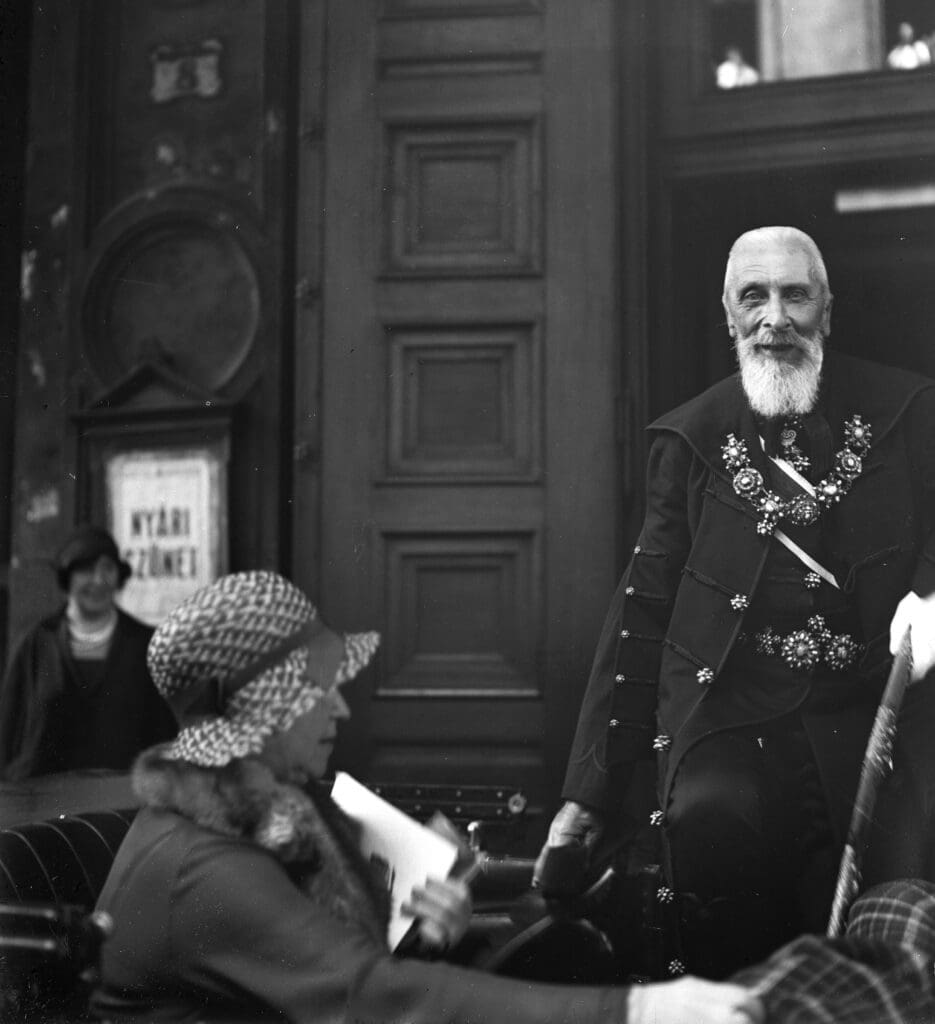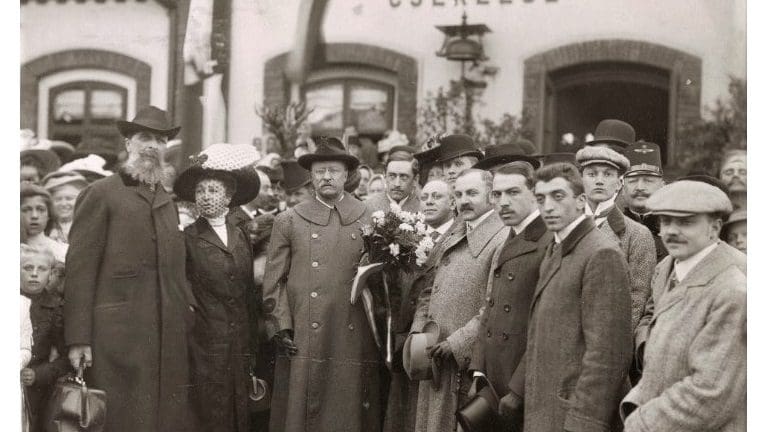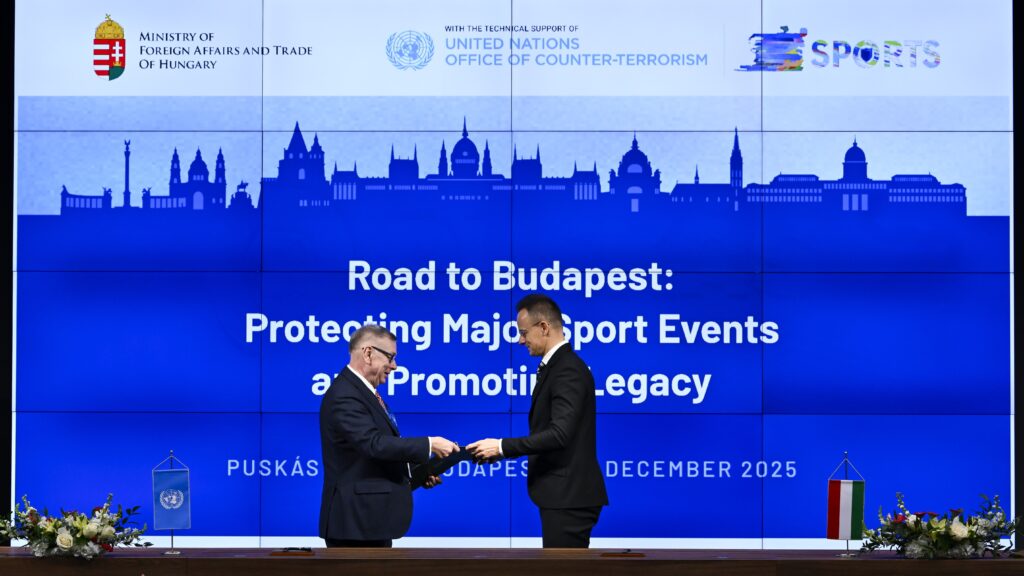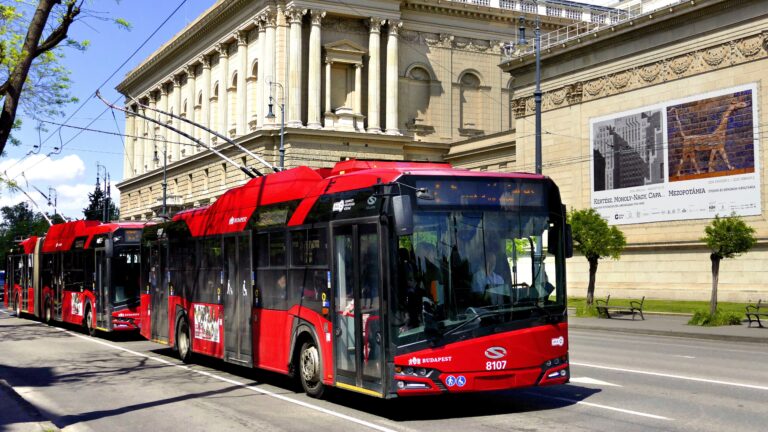Count Albert Apponyi of Hungary and President Theodore Roosevelt of the United States were both among the most influential figures of their time in their respective countries. Apponyi visited the United States to give a series of public lectures in September 1904—much like Lajos (Louis) Kossuth did in 1851. And, just like Kossuth, Apponyi also met the incumbent US President at the time.
In Kossuth’s case, it was Millard Fillmore from the Whig Party who was the head of state, while in Apponyi’s case, it was Theodore Roosevelt from the Republican Party. Roosevelt had him over for lunch at the White House (it was actually Roosevelt who started calling the Presidential residence that, formerly known as ‘the Executive Mansion’), along with Ambassador Ladislaus Hengelmüller.
However, Apponyi got on so well with President Roosevelt that he even paid him a return visit six years later.
By then, Roosevelt was out of office after serving nearly two full terms. He ascended to the highest office from the Vice Presidency after President William McKinley’s assassination in 1901, as the still the youngest man ever to become President at just age 42. In accordance with what was ‘only’ a tradition then, set by George Washington, and not a constitutional rule, he did not seek a third term and instead helped his Secretary of War and hand-picked successor William Howard Taft (whom Count Apponyi also met in person, by the way) win the election for the Republicans in 1908.
Holding no public office or rank in a military for the first time in a long time, the restless Theodore Roosevelt decided to go on a months-long hunting journey in Africa. And he was not ready to go home to America just yet, so he ‘stopped by’ on the Old Continent as well, Europe, where he made a series of public appearances and met with the leaders of many countries. Austria-Hungary was among the first countries he visited.
Roosevelt arrived in Vienna in April, then made his way to Budapest for a three-day visit,
making him the first US President, incumbent or former, to set foot on Hungarian land.
His friend Count Apponyi—who had spent many decades serving in the Hungarian National Assembly by then, having first been elected in 1872—arranged for the former POTUS to speak in parliament before a meeting, as a guest of honour. In his impromptu address to the House, President Roosevelt said:
‘I do not only respect and hold sympathy for Hungary but I am also an admirer of her, because I know that throughout the history of Hungary there are several lessons that are worthwhile for us and every other nation to learn. From these we can learn the lesson of bravery and the lesson of iron resolve and perseverance. Gentlemen!
The whole civilized world is indebted to Hungary for her work. When America was still in Europe’s womb, Hungary was protecting the safety of the civilized world by preventing barbarism from spreading.
The merit belongs to your ancestors since it was they who repelled those attacks which were coming from the barbaric world and were aiming at Western culture, since it was their bodies that stopped the advance of barbarism.
Washington’s nation in the large cities of the Western Hemisphere still looks with admiration at your great, brave, and noble kings, at the glorious soldiers fighting in Transylvania and on both sides of the Danube, and at those many triumphant victories that they fought. There is no more illustrious history than that of the Hungarian nation.I know this history and I would not deem myself an educated man if I did not know it.’
Needless to say, this short speech by Roosevelt,
which was received with a long standing ovation by parliament, made him immensely popular among all Hungarians,
even among the nationalists who were thriving for independence from Austria, despite Roosevelt favouring the Dual Monarchy.

As for his friend Count Apponyi, who was instrumental in getting Roosevelt to Hungary and in front of the House, he also had some very nice things to say. He described him as ‘an advanced Liberal in matters political but also in matters ecclesiastical’ and as ‘an American Liberal of the best type’. While Apponyi started his career as a conservative monarchist, by the time Theodore Roosevelt came to visit in 1910, he was a member of the liberal Kossuth Party of Independence and '48. He couldn’t have known at the time that he would be entrusted with the most unrewarding task a diplomat ever undertook: leading the Hungarian delegation to the Paris Peace Conference to present Hungary's case to the Allied and Associated Powers...
Related articles:







